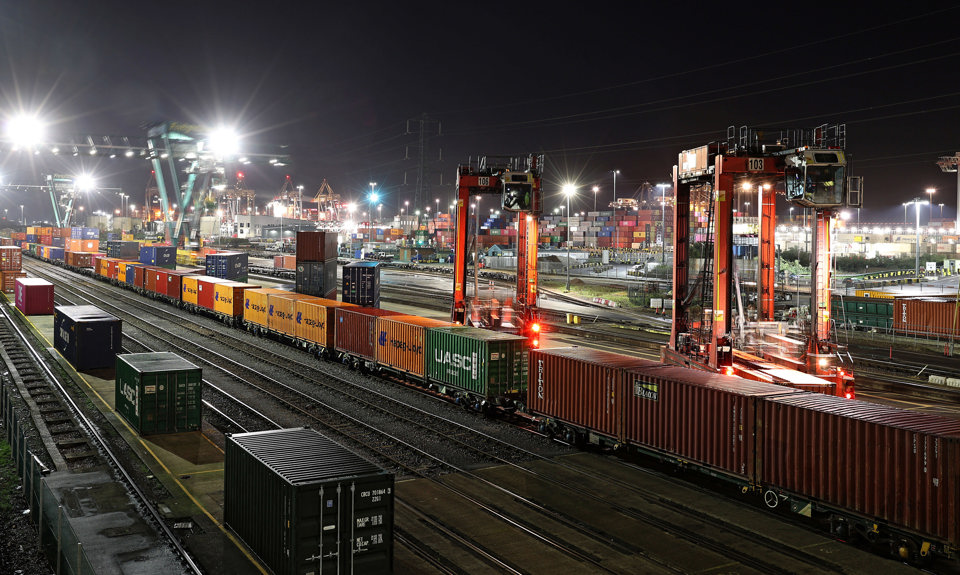DP World has selected Pledge to deliver carbon cutting metrics for its road to rail programme.
It will measure the impact of DP World’s modal shift programme (MSP) which financially incentivises cargo owners to switch from road to rail for freight transport from the Port of Southampton to railheads within a radius of 140 miles.
The programme is also helping to address the current under-utilisation of the UK’s rail freight network.
While the volume of cargo moved by rail from Southampton had previously dropped by ten percentage points in the decade leading to 2023, the MSP has reversed this trend, increasing the share of freight moved by rail from 21% to 30% since September 2023.
This, says DP World, has made a significant contribution to the Government’s 2050 target for a 75% increase in rail freight to reduce congestion and emissions on the roads.
The MSP has already removed 6,400 tonnes of CO2 equivalent (CO2e) in its first six months of operation.
Working out how many kilos of CO2 equivalents are saved for every consignment is calculated using the Pledge platform. This uses the cargo’s weight, origin and destination locations, the type and characteristics of the vehicle used and other factors, such as road characteristics and elevation levels, to establish the road-based carbon footprint for each journey.
The footprint for a rail-based journey, with trucks only used for the ‘last mile’, is also established, and the difference between the two figures is the carbon emission savings made.
By utilising Pledge, DP World can thus understand the exact impact of its programme, for every container that leaves the port by rail, and allows for the emissions reporting required by international, national and regional reporting regulations, as well as the figures required for customers’ emission reduction and offsetting targets.
Pledge co-founder and CEO, David de Picciotto, said: “We are thrilled to be partnering with DP World to create ongoing, data-driven proof of the impact of its modal shift programme. “Understanding and quantifying emissions is a requirement for global businesses and the vital first step towards reducing them. As is often said, ‘You can't improve what you don't measure’.
“We hope that what is happening in Southampton will inspire ports and other transit hubs worldwide to emulate its success in tackling some of the key challenges of the climate crisis.”
John Trenchard, vice president UK commercial and supply chain at DP World, added: “The MSP has allowed our customers to explore how rail can be effectively utilised to achieve lower carbon for international supply chains serving the UK economy.”
CO2e figures calculated by the Pledge platform are accredited by the Smart Freight Centre (a global non-profit organisation for climate action in the freight sector) to be in conformance with the Global Logistics Emissions Council (GLEC) Framework for measuring transport and logistics emissions.
It uses proprietary algorithms alongside a variety of GIS services from Google, Amazon and others, as well as several open-source datasets to cover almost any journey in any mode of freight-bearing transport, over road, rail, air, sea and inland waterways.




















Login to comment
Comments
No comments have been made yet.